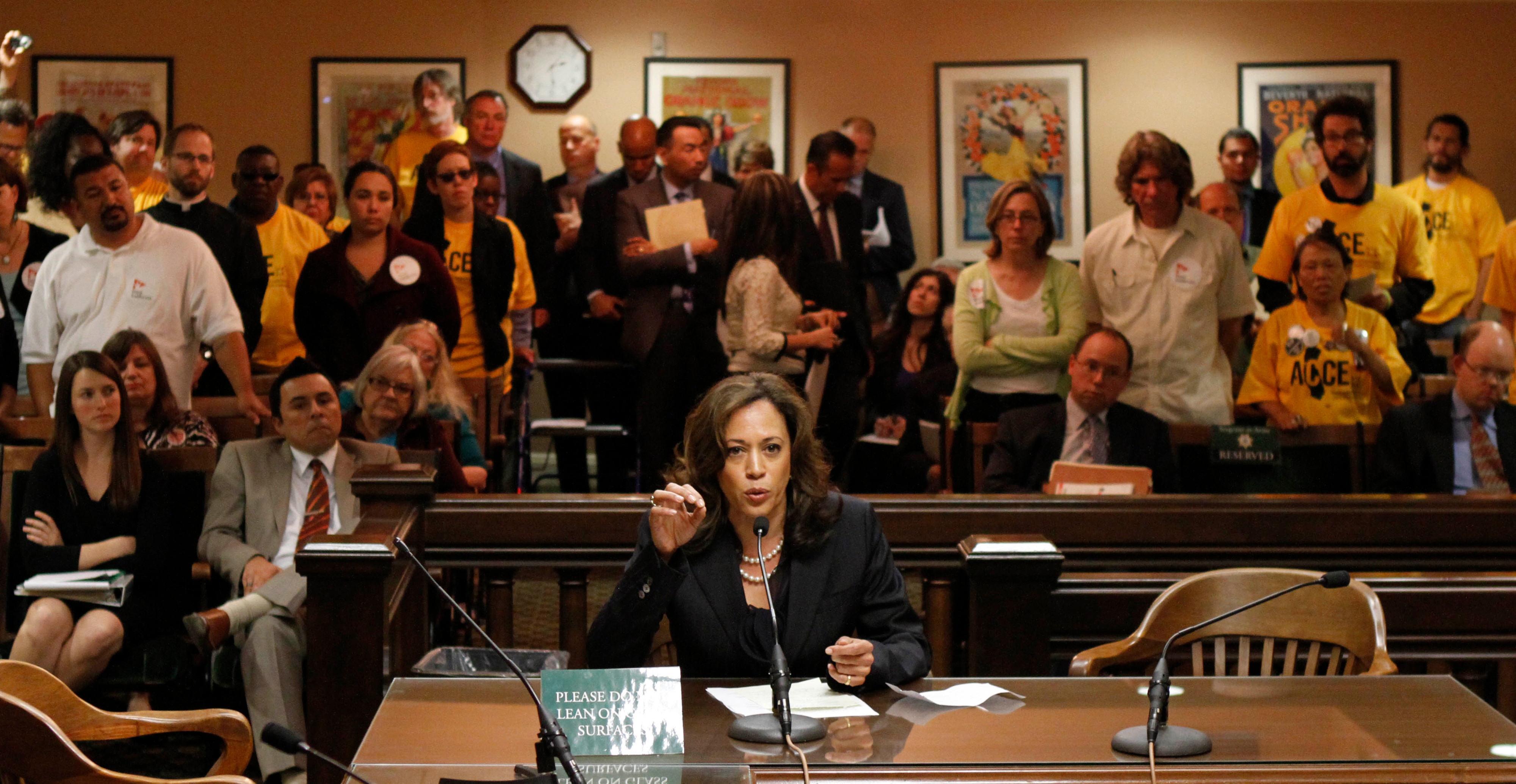MAGAs just love to post trolling, fact-free partisan opinion. Harris has a very strong record as a prosecutor working in the public interest. Meanwhile, the GOP has put up a felon.
Kamala Harris played hardball with banks. It delivered billions for homeowners.
This chapter of Harris’ time as attorney general, allies say, showed a resolve to make gutsy decisions and withstand pressure to fall in line.
washingtonpost.com

Kamala Harris had been California’s attorney general for about eight weeks when she gathered with her peers in front of a coffee station at the Fairmont Hotel in Washington, D.C. Attorneys general from across the country were closing in on a multibillion dollar mortgage settlement with major banks, whose risky lending practices leading up to the Great Recession spurred an unprecedented crisis that by early 2011 was still costing Americans their homes.
But Harris couldn’t believe her fellow attorneys general were ready to make a deal. The banks’ offer seemed paltry considering the damage people suffered, especially in California, which had one of the highest foreclosure rates in the country. It also would give banks some immunity from future lawsuits.
Some of the negotiators were concerned Harris might bail and risk killing the settlement. She skipped an afternoon session and headed to the Justice Department to drill down on what investigators were finding and push the Obama administration to do more.
“I don’t know that anyone can answer our questions,” two of Harris’s top aides recalled her saying after those meetings in March 2011. “We’re going to have to answer our own questions.”
Unsatisfied with what she was hearing — from the administration, other attorneys general and the banking sector — Harris walked away from those initial multistate talks six months later. There were no guarantees that move would pay off. But by early 2012, she struck a historic $18 billion agreement for California, far more than what had been on the table. Harris now describes the saga on the campaign trail as a key example of how she has delivered for middle-class families.
The deal was far from perfect: Thousands of Californians still lost their homes, in some cases opting for sales in which they lost home equity but avoided foreclosure. Advocacy groups were frustrated by the lack of data showing whether relief went to poorer communities and people of color. The settlement didn’t satisfy widespread ire at the banking system, and in the years that followed, enforcement wasn’t always smooth. Harris also wasn’t the only attorney general struggling with how much to push for, and when to decide enough was enough.
When she ran for the U.S. Senate in 2016, Harris’s Democratic opponent Loretta Sanchez accused her of exaggerating her influence in the settlement talks and faulted Harris at a news conference for not bringing “one single prosecution against any major bank executive.”
The Trump campaign also has suggested that Harris has overstated the amount of relief the deal yielded for California homeowners. In a statement, Trump campaign national press secretary Karoline Leavitt said Harris “lied about her work on the mortgage settlement.”
“She failed Californians and has failed Americans, as evidenced by unaffordable inflation, a porous border and weakness on the world stage,” Leavitt said.
But ininterviews, two dozen former aides, attorneys general, banking experts and Obama administration officials underscored that Harris’s role as a tough negotiator set her apart. Her allies look back on the episode as an example of her ability to make gutsy decisions — withstanding pressure from colleagues trying to get her to fall in line and going toe to toe with banking executives who said her demands wereunfair. Supporterssay she was fueled by the desire to bring what she saw as “justice” to Californians on the brink of losing their homes, including many who found her at public events to begfor help.
“She got more involved in wanting to understand the remedies, and what those looked like, than any of the other AGs,” said Shaun Donovan, secretary of the Department of Housing and Urban Development under Obama and one of his administration’s chief negotiators. “She pushed us hard.”
Harris was emboldened to walk away from the initial deal, said her former political adviser Brian Brokaw, because she felt the facts were on her side — putting her ina position of strength.
“It was a gamble,” Brokaw said. “She doesn’t take unnecessary risks or uncalculated risks — and she is big on cost-benefit analysis and a risk assessment. For her, this was a very calculated legal and political risk.”
</snip> Read the rest here: washingtonpost.com |





